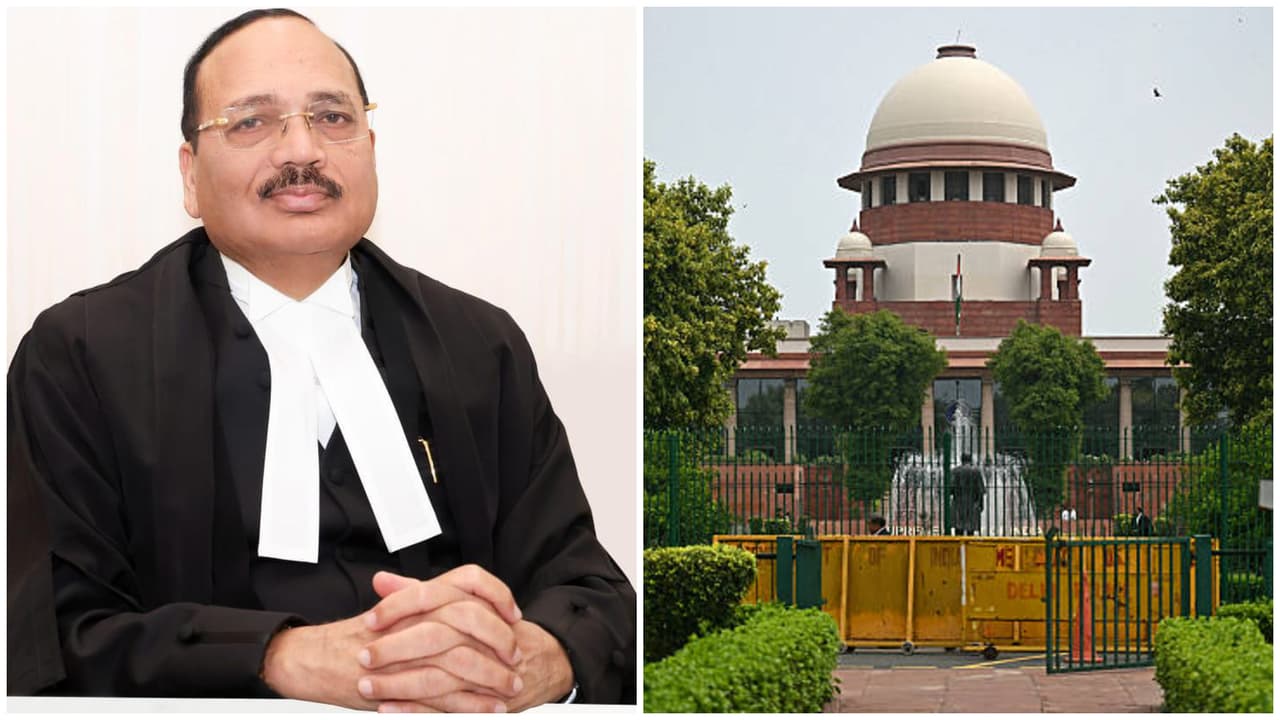Justice Surya Kant on Monday took oath as the 53rd Chief Justice of India (CJI), marking the beginning of his 14-month tenure in the country’s highest judicial office.
Justice Surya Kant on Monday took oath as the 53rd Chief Justice of India (CJI), marking the beginning of his 14-month tenure in the country’s highest judicial office. President Droupadi Murmu administered the oath of office to Justice Kant, who succeeds incumbent CJI Bhushan R. Gavai.
Scroll to load tweet…
Appointed as the next CJI on October 30, Justice Kant will serve until February 9, 2027, when he attains the age of 65. Born on February 10, 1962, Justice Kant hails from Haryana’s Hisar district where he began his professional journey as an advocate. He then moved to the Punjab and Haryana High Court, where he crafted a reputation for incisive legal reasoning and impactful judgments. His appointment as Chief Justice of the Himachal Pradesh High Court in 2018 further cemented his stature.
At the Supreme Court, Justice Kant carved out a legacy through his participation in watershed cases that framed national policy, constitutional boundaries, and civil freedoms.
Article 370 Verdict
Justice Kant was part of the historic bench that upheld the abrogation of Article 370, stripping Jammu & Kashmir of its special status — a ruling considered one of the most transformative constitutional judgments in contemporary history.
Sedition Law Freeze
In a landmark intervention, he was on the bench that halted the colonial-era sedition law, directing states and the Centre not to file new FIRs under Section 124A IPC until the government reviewed the provision. The direction was celebrated as a robust defence of free expression.
Pegasus Spyware Probe
Justice Kant played a pivotal role on the bench examining allegations surrounding the Pegasus surveillance scandal. The court appointed a panel of cyber experts to probe the claims, remarking that the state cannot be handed a “free pass in the name of national security.”
Bihar Electoral Roll Scrutiny
In another notable ruling, he pressed the Election Commission to reveal details of 65 lakh voters removed from Bihar’s draft electoral rolls during a Special Intensive Revision, underscoring the necessity of transparency in democratic processes.
Championing Gender Justice
Justice Kant spearheaded a bench that reinstated a woman sarpanch ousted through unlawful means, sharply criticizing the gender bias behind her removal. He later issued a groundbreaking directive mandating one-third reservation for women in bar associations, including the Supreme Court Bar Association — a defining push for gender parity in the legal ecosystem.
Governor–President Powers
He also served on the Constitution Bench examining the presidential reference on the authority of Governors and the President in matters of state legislation — a matter with deep federal and political significance. The verdict in this critical case is eagerly awaited.
PM Modi Convoy Security Breach
Justice Kant was part of the bench that constituted a panel led by Justice Indu Malhotra to investigate the security lapse during Prime Minister Narendra Modi’s 2022 visit to Punjab, stressing that such incidents demand rigorous judicial oversight.
OROP Ruling
He upheld the constitutionality of the One Rank-One Pension (OROP) scheme while continuing to hear cases related to gender parity for women officers seeking permanent commission in the armed forces.
AMU Minority Status
Most recently, on a seven-judge bench, Justice Kant helped overturn the 1967 ruling concerning the minority status of Aligarh Muslim University, enabling a fresh reconsideration of this long-contested issue.
